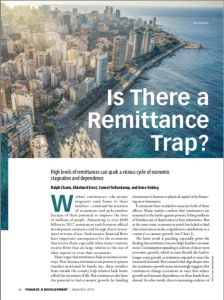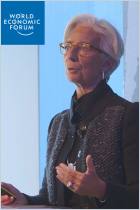Acesse a sua conta getAbstract para obter o resumo!

Acesse a sua conta getAbstract para obter o resumo!
Ralph Chami, Ekkehard Ernst, Connel Fullenkamp and Anne Oeking
Is There a Remittance Trap?
High levels of remittances can spark a vicious cycle of economic stagnation and dependence
Finance & Development Magazine, 2018
Sobre o que é?
In developing countries, remittances alleviate poverty but also create macroeconomic dependency.
Recommendation
Worker remittances from abroad can help a domestic economy improve the welfare of its population. Yet, according to economists Ralph Chami, Ekkehard Ernst, Connel Fullenkamp and Anne Oeking, policy makers often must deal with the distorted incentives that remittances create. Rather than fueling economic growth, these capital inflows tend to act like a drug, increasing the recipient’s dependence on them and causing macroeconomic stagnation. This perceptive study offers analysts and economists a fresh look at the factors affecting economic growth in developing countries.
Summary
About the Authors
Ralph Chami and Anne Oeking are economists at the IMF. Ekkehard Ernst is chief of macroeconomic policy at the International Labour Organization. Connel Fullenkamp is an economics professor at Duke University.





















Comment on this summary